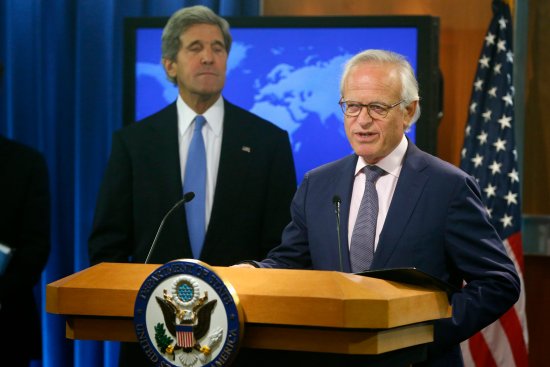
Indyk failed to reach a peace deal within nine months of his appointment
U.S. Special Envoy for Israeli-Palestinian Negotiations Martin Indyk will leave his post after failing to help broker a peace settlement between the two nations. Indyk’s stepping down comes less than a year after his appointment to the job.
The U.S. State Department announced Friday that Indyk will return to his former position as Vice President and Director of Foreign Policy at The Brookings Institution, but he will continue to work with Secretary of State John Kerry on the peace process. Indyk, a former U.S. Ambassador to Israel, was appointed to the envoy post by Kerry last July.
“Ambassador Indyk has invested decades of his extraordinary career to the mission of helping Israelis and Palestinians achieve a lasting peace,” Kerry said in a statement. “It’s the cause of Martin’s career, and I’m grateful for the wisdom and insight he’s brought to our collective efforts.”
Frank Lowenstein, Indyk’s deputy, will serve as Acting Special Envoy, the statement said.
The announcement comes three months after Indyk and Kerry’s latest effort to reach a peace deal broke down, with both the Israelis and the Palestinians abandoning pledges they had made when peace talks resumed last year. In a May address at a conference organized by the Washington Institute for Near East Policy, Indyk said that “both parties, while showing flexibility in the negotiations, do not feel the pressing need to make the gut-wrenching compromises necessary to achieve peace.
“It is easier for the Palestinians to sign conventions and appeal to international bodies in their supposed pursuit of justice and their rights, a process which by definition requires no compromise,” Indyk continued in that speech. “It is easier for Israeli politicians to avoid tension in the governing coalition and for the Israeli people the current comfortable status quo. It is safe to say that if we, the U.S., are the only party that has a sense of urgency, the negotiations will not succeed.”